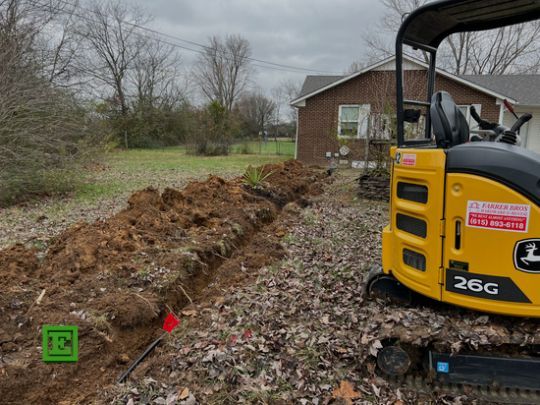Septic Systems:
Understanding how your septic system works and how to properly maintain it to avoid costly repairs
Septic systems are commonly used in areas where there is no access to a municipal sewage system. A septic system is an underground wastewater treatment system that is used to treat and dispose of household wastewater on-site. The system is made up of a septic tank and a drain field, and its operation is critical to the health of your family and the environment.
Understanding How Your Septic System Works
The septic tank is the first component of the system and is where wastewater from your home goes first. In the tank, the solid waste settles to the bottom and forms a layer of sludge, while the lighter waste, such as grease and oils, float to the top and form a layer of scum. The liquid that remains in the middle of these two layers is called effluent, and it exits the tank and flows to the drain field.
Next article
The drain field, also known as a leach field, is a series of perforated pipes that are buried in gravel-filled trenches or beds. The effluent flows out of the tank and into the drain field, where it percolates through the gravel and into the soil, where it is further treated and purified.
Proper Maintenance of Your Septic System
Proper maintenance of your septic system is essential to prevent costly repairs and ensure that it operates efficiently. Here are some tips to help you maintain your system:
- Get Regular Inspections - You should have your septic system inspected by a professional plumber at least once every three years. During the inspection, the plumber will check the tank and drain field for leaks and signs of damage. They will also check the levels of sludge and scum in the tank, which will help determine if the tank needs to be pumped.
- Regular Pumping
- The sludge and scum that accumulate in the septic tank need to be removed regularly. Depending on the size of your tank and the number of people in your household, the tank should be pumped every 3 to 5 years.
- Water Conservation - Excessive water use can overload your septic system and lead to its failure. You can conserve water by fixing leaky faucets, installing low-flow showerheads, and using a high-efficiency washing machine.
- Proper Disposal - You should only dispose of household waste and toilet paper in your septic system. Do not dispose of items such as diapers, feminine hygiene products, cigarette butts, or coffee grounds, as they can clog your system and cause it to fail.
Why You Should Use a Professional Plumber
While some maintenance tasks can be performed by the homeowner, such as conserving water and proper waste disposal, other tasks should be left to the professionals. Septic tanks are hazardous to work with, and attempting to perform maintenance or repairs on your own can lead to serious injury or even death.
Professional plumbers have the experience and equipment necessary to perform septic system maintenance and repairs safely and efficiently. They are also familiar with local regulations and codes, and can ensure that your system is in compliance with all applicable laws.
Learn more
In conclusion, proper maintenance of your septic system is essential to avoid costly repairs and ensure its efficient operation. Regular inspections, pumping, water conservation, and proper waste disposal are all crucial to the health of your system. While some maintenance tasks can be performed by the homeowner, it is essential to leave more complex tasks to the professionals. So, if you want to keep your septic system in good working order, be sure to call a professional plumber today.


